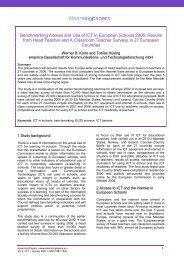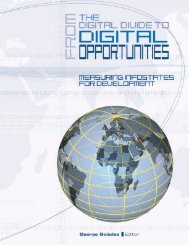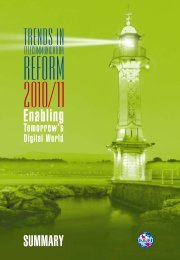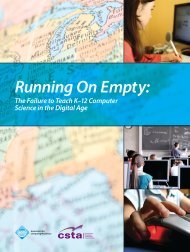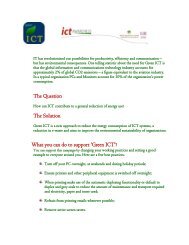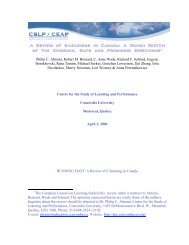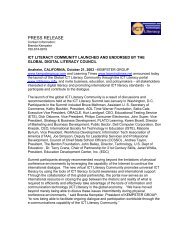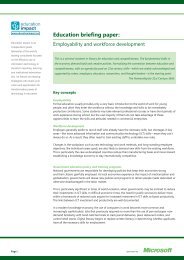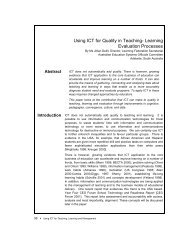Learning Technologies Conference 2009 - ICT Digital Literacy
Learning Technologies Conference 2009 - ICT Digital Literacy
Learning Technologies Conference 2009 - ICT Digital Literacy
You also want an ePaper? Increase the reach of your titles
YUMPU automatically turns print PDFs into web optimized ePapers that Google loves.
Keynotes:<br />
Opening keynote: <strong>Learning</strong> and development: intellectual capital you can bank on<br />
Speaker: Tony Buzan, author, educationalist, creator of Mindmapping ®<br />
Key messages: nurture your brain, help people to invest in theirs and be ready to take the opportunities it will<br />
bring<br />
Tony stressed that we are living in a paradigm shifting age that requires the development of multiple<br />
intelligences. He pointed to research on creativity that suggests that people’s creative ability reduces as we<br />
progress through the educational system. While these results have been replicated globally, they do not<br />
indicate a natural state of play as we use less than one percent of our creative potential. He argued that L&D<br />
needed to develop their organisation’s intellectual capital through helping people to invest in their brains and<br />
to develop the skills of creativity. This can only be done by ensuring people work in a supportive environment<br />
and have the opportunity to learn and to make connections. (DG)<br />
Keynote: <strong>Learning</strong> and Technology: success and strategy in a digital world<br />
Speaker: George Siemens, University of Manitoba<br />
Key messages: L&D professionals must understand that they are involved in information shaping; we must<br />
broaden and clarify our vision; the ROI criteria have changed.<br />
George spoke for forty densely packed, PowerPoint-free minutes without hesitation, deviation or repetition,<br />
but with a fair amount of wry humour! He traced the evolution of the management of information, in<br />
particular in the field of PR, and drew parallels and lessons for the field of L&D. Echoing Tony Buzan, he talked<br />
of how L&D was moving towards the management of the management of learning, towards a society of weak<br />
links and quick connections. The quantitative change in the volume and speed of information available brings<br />
its own qualitative change: more, as George says, is different. Questions at the end included this: does this<br />
change mean that L&D is moving from a production to a custodial role? (KR)<br />
Closing keynote: <strong>Learning</strong> for tomorrow: what a difference a decade makes<br />
Speakers: Donald Clark, Ufi; Jay Cross, Internet Time Group and Charles Jennings, Duntroon<br />
Key messages: The global economy is in survival mode, to survive we need to look back at social networking as<br />
well as forwards; We have the tech, now how do we use it? The culture must switch from training to<br />
performance<br />
Jay opened with his inimitable enthusiasm about the past ten years of development. He suggested that we<br />
consider throwing away our 3/5/10 year strategies for e<strong>Learning</strong>. How do we know if informal learning is good<br />
enough? If its good enough for Obama its good enough for you. Jay also mentioned how he plans to bring<br />
together non-L&D specialists at www.learningirregulars.com.<br />
Charles introduced the German concept of ‘Fachidiot’ – or one trick pony. Having a single solution to a training<br />
need is no longer an option. Charles asked: Has anything in training actually changed in the last 10 years?<br />
<strong>Learning</strong> is about behavioural change, not passing assessments.<br />
<strong>Learning</strong> <strong>Technologies</strong> <strong>2009</strong> <strong>Conference</strong> Report pg 3



